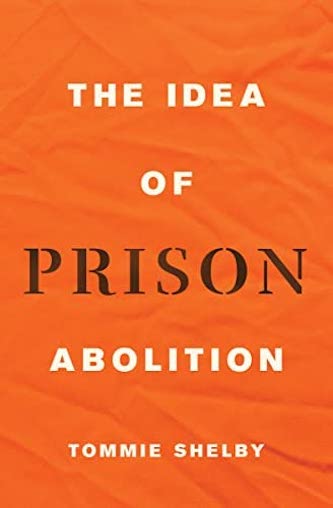Book Review: “The Idea of Prison Abolition” — An Unconvincing Case
By Bill Littlefield
The Idea of Prison Abolition is a worthwhile book, but Dr. Shelby’s case, philosophically strong as it might be, is not very likely to convince prison abolitionists.
The Idea of Prison Abolition by Tommie Shelby. Princeton University Press, 231 pages
 In a chapter of The Idea of Prison Abolition entitled “Punishment, Dehumanization, and Slavery,” Tommie Shelby, the Caldwell Titcomb Professor of African and African American Studies and of Philosophy at Harvard University, writes: “I regard imprisonment as justified only if milder penalties are insufficient to control crime adequately.” It’s a reasonable shorthand version of the conclusion to the ambitious, sometimes tedious philosophical argument that runs throughout the book.
In a chapter of The Idea of Prison Abolition entitled “Punishment, Dehumanization, and Slavery,” Tommie Shelby, the Caldwell Titcomb Professor of African and African American Studies and of Philosophy at Harvard University, writes: “I regard imprisonment as justified only if milder penalties are insufficient to control crime adequately.” It’s a reasonable shorthand version of the conclusion to the ambitious, sometimes tedious philosophical argument that runs throughout the book.
Readers will bring to Dr. Shelby’s volume their own definitions of “milder penalties” and what constitutes the “adequate” control of crime. The author makes his point of view clear early on. After having examined the idea of prison abolition, Dr. Shelby found that the proposition was full of passion but lacking in logic. He came to this verdict based on various academic approaches to the matter.
Having worked with some thoughtful, articulate, thoroughly admirable incarcerated men who were convicted of murder when they were very young and who have been serving sentences of thirty years or more, I agree with Dr. Shelby when he opines that “there is evidence that, at a certain level of severity, lengthy prison terms do not deter any more than shorter ones.” And that this “gives us reason to make American sentences shorter, probably considerably shorter, as they are in other parts of the world.” But his conclusion — that prisons will be necessary until reforms in many areas beyond incarceration have been accomplished — is less convincing. Having written previously about the impact of such “structural injustices” as housing, perhaps Dr. Shelby won’t surprise his readers with the final sentence of his latest book: “Don’t’ abolish the prison; abolish the ghetto.”
Does that have to be an either/or proposition?

Author Tommie Shelby.
Dr. Shelby presents himself as an admirer of Angela Davis, who has championed the elimination of prisons. Yet he can’t bring himself to embrace her position. The furthest he will go is to recommend trying out “a moratorium on imprisonment.” But he argues that any moratorium would be based on “the injustice of background structural conditions, not on a condemnation of existing prison conditions.” He also seems to suggest that, even in the event of a moratorium, some people should be locked up.
People who are familiar with “existing prison conditions” and are committed to achieving the abolition of prisons will challenge this recommendation. Today’s system assumes that an insanely inequitable distribution of goods and services is inevitable, even preferable; and then there are the current conditions in our police departments, courts, jails, and prisons. They may feel that the “prison experience” is going to be dehumanizing and brutal, no matter what changes reformers manage to achieve. They may argue that the system within which the prisons exist ensures that a productive, positive, corrective experience within a prison is impossibly unlikely. Thus the sort of reforms Dr. Shelby recommends would constitute putting lipstick on a pig.
This is not to suggest that The Idea of Prison Abolition isn’t a worthwhile book, only that it’s not very likely to convince prison abolitionists of Dr. Shelby’s case, intellectually strong as it might be. This is perhaps, at least in part, because the experience of being in prison — or of working with or visiting incarcerated men and women — inculcates such a visceral distaste for the realities of the institution as it is that philosophy won’t dent the passion for its abolition.
Bill Littlefield works with the Emerson Prison Initiative. His most recent novel is Mercy, Black Rose Writing, 2022.
